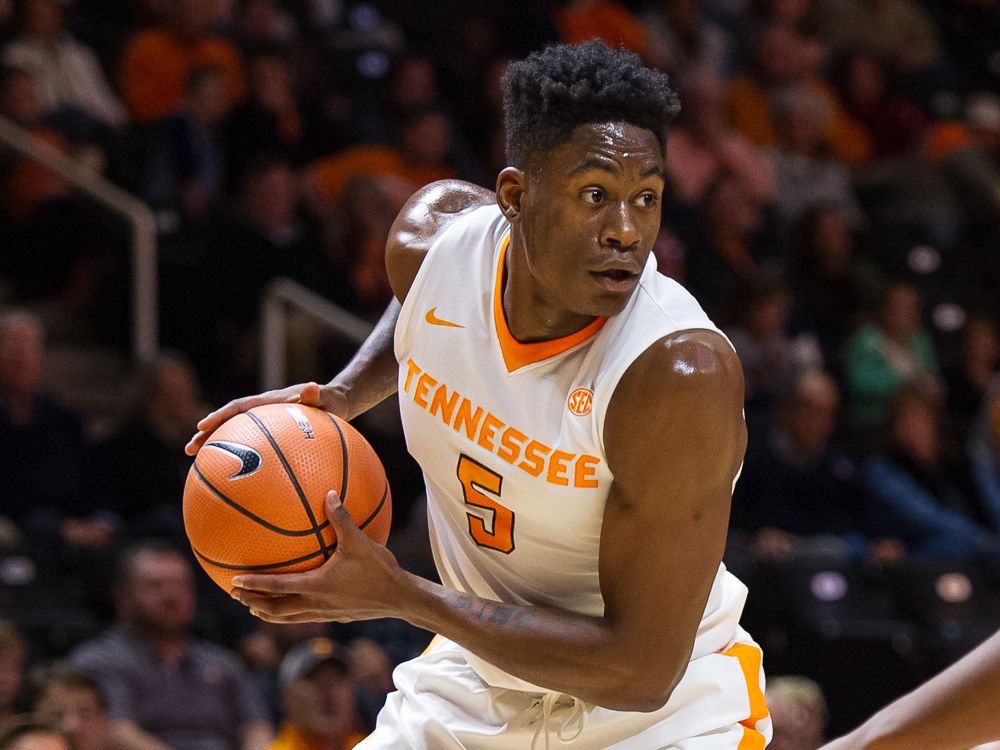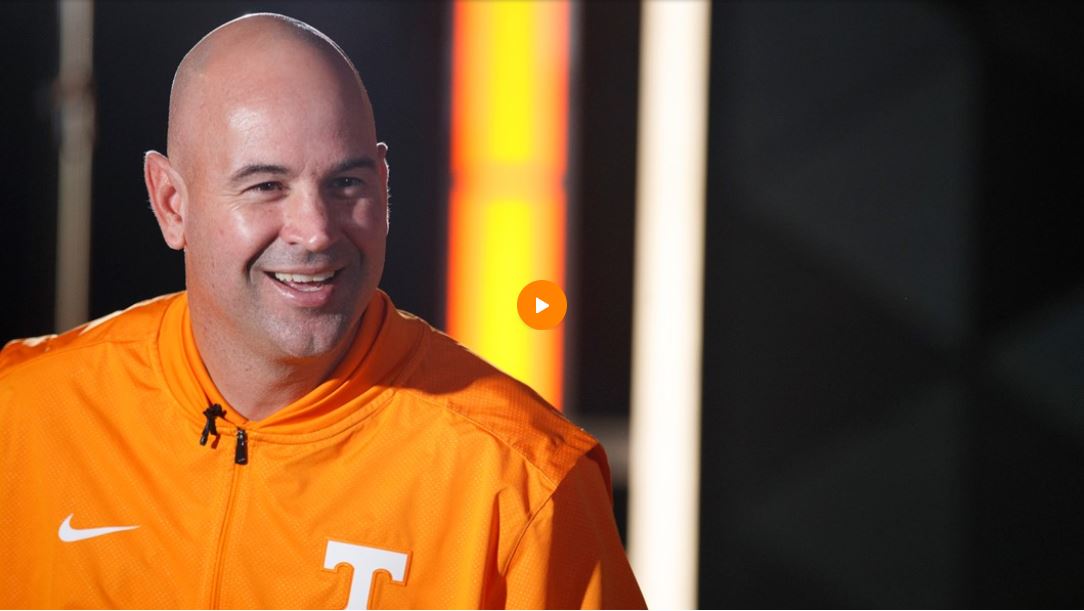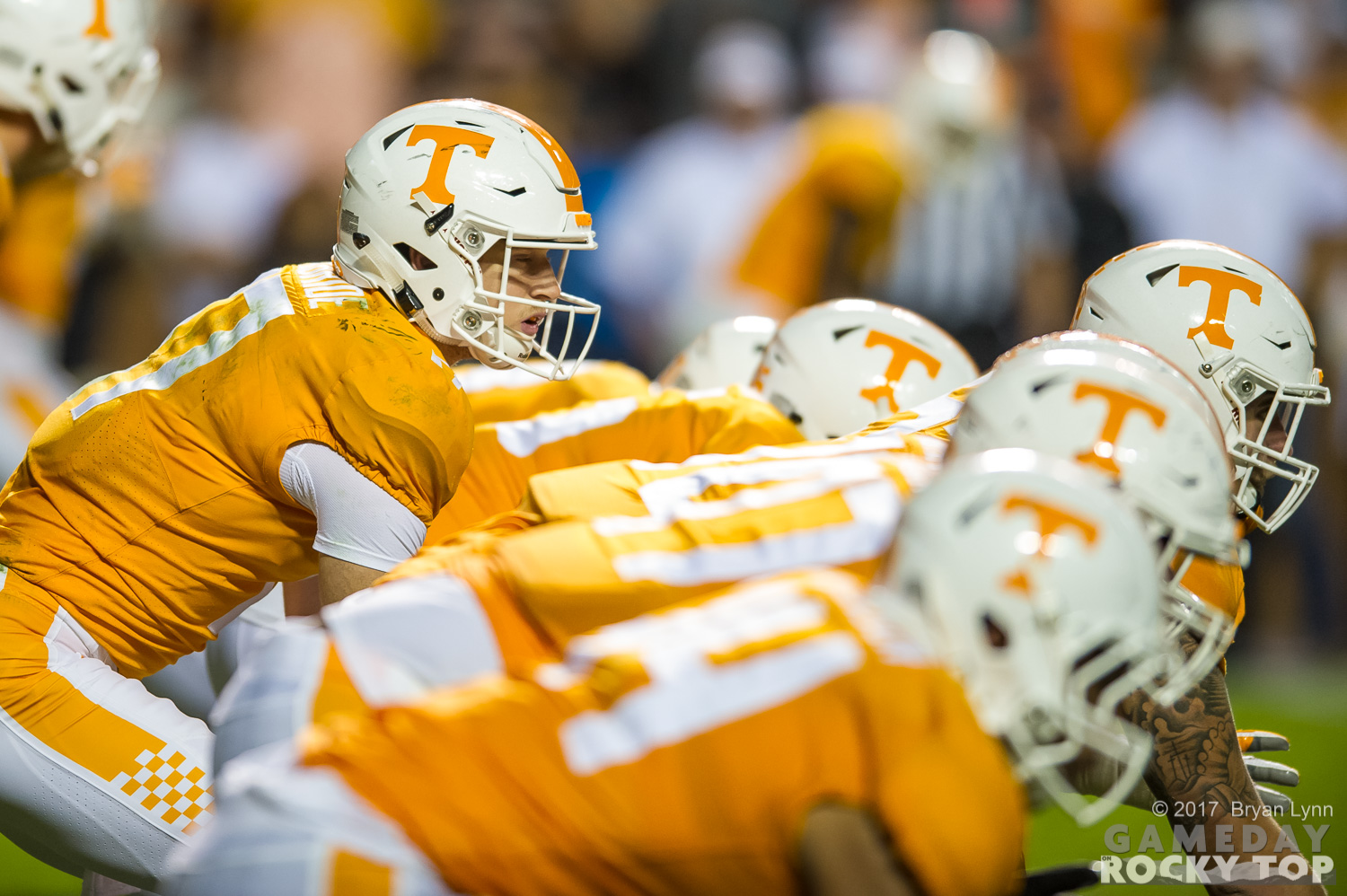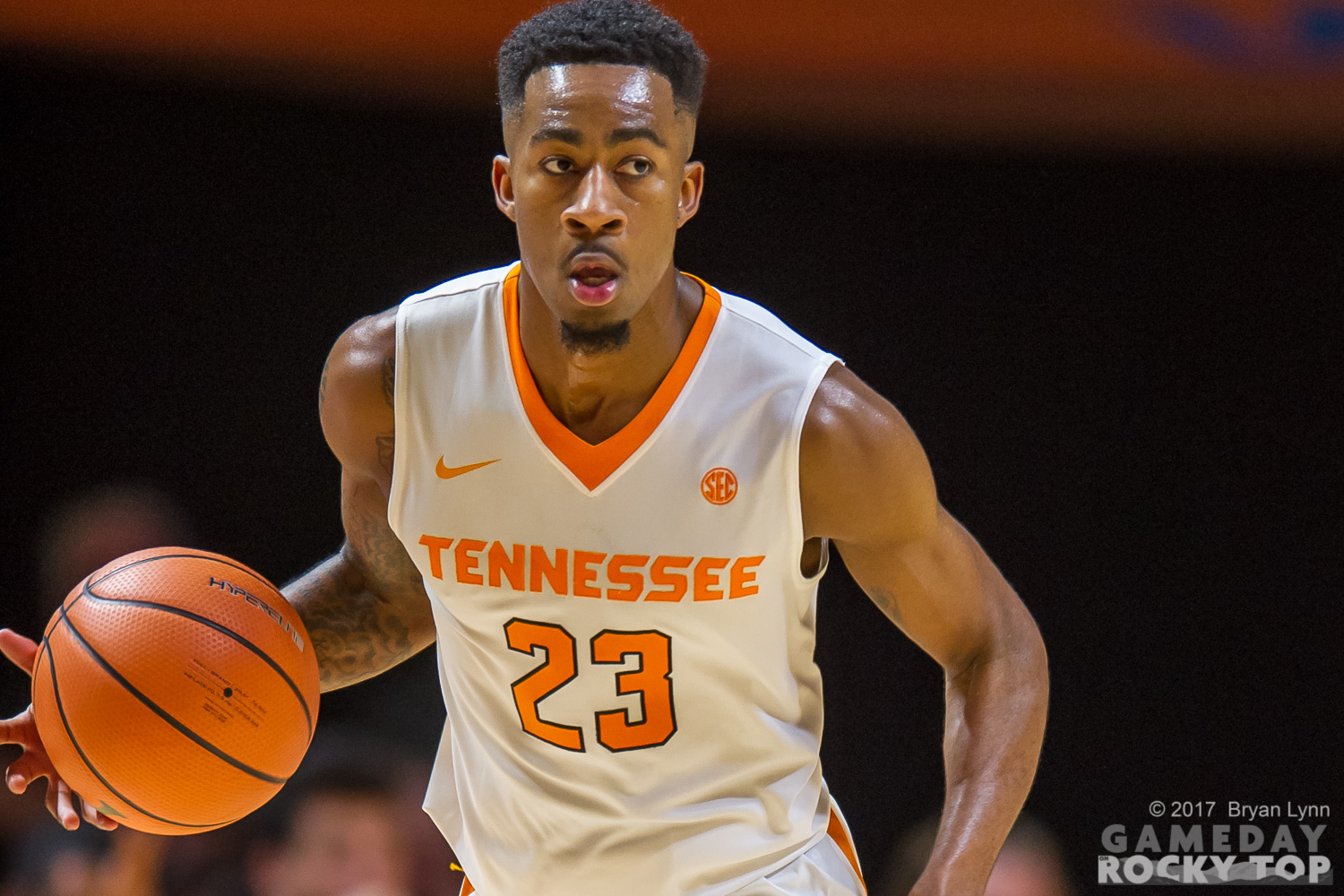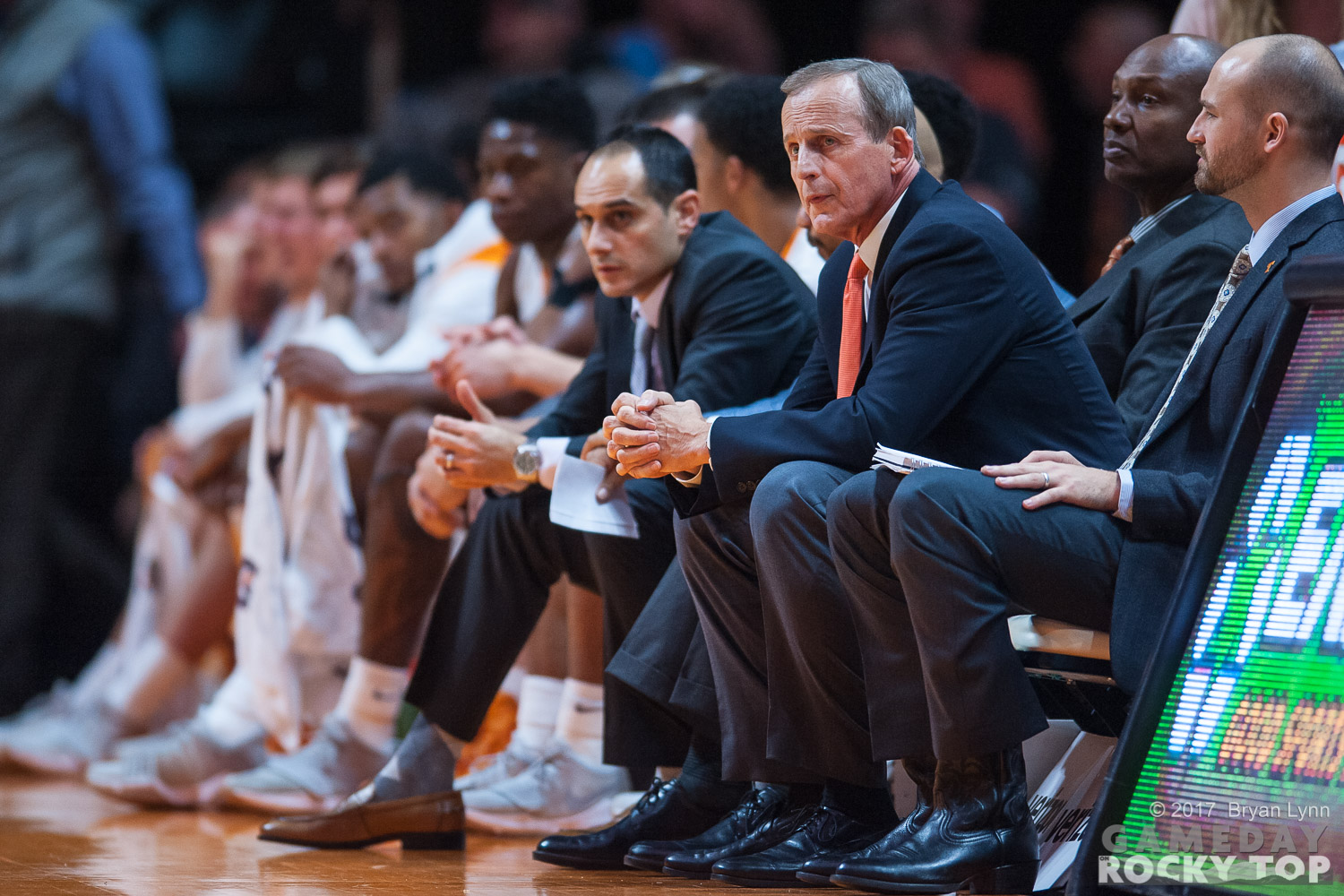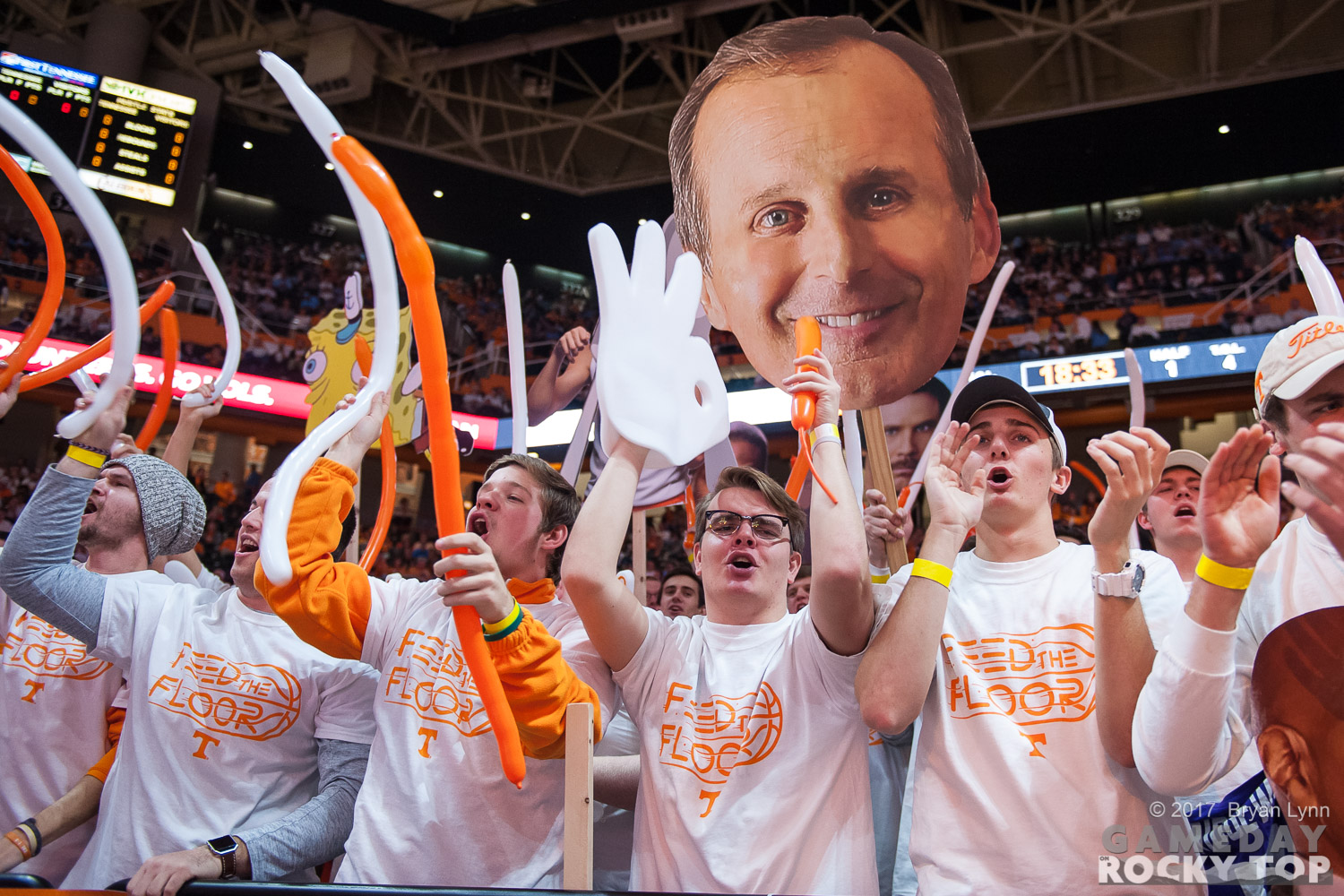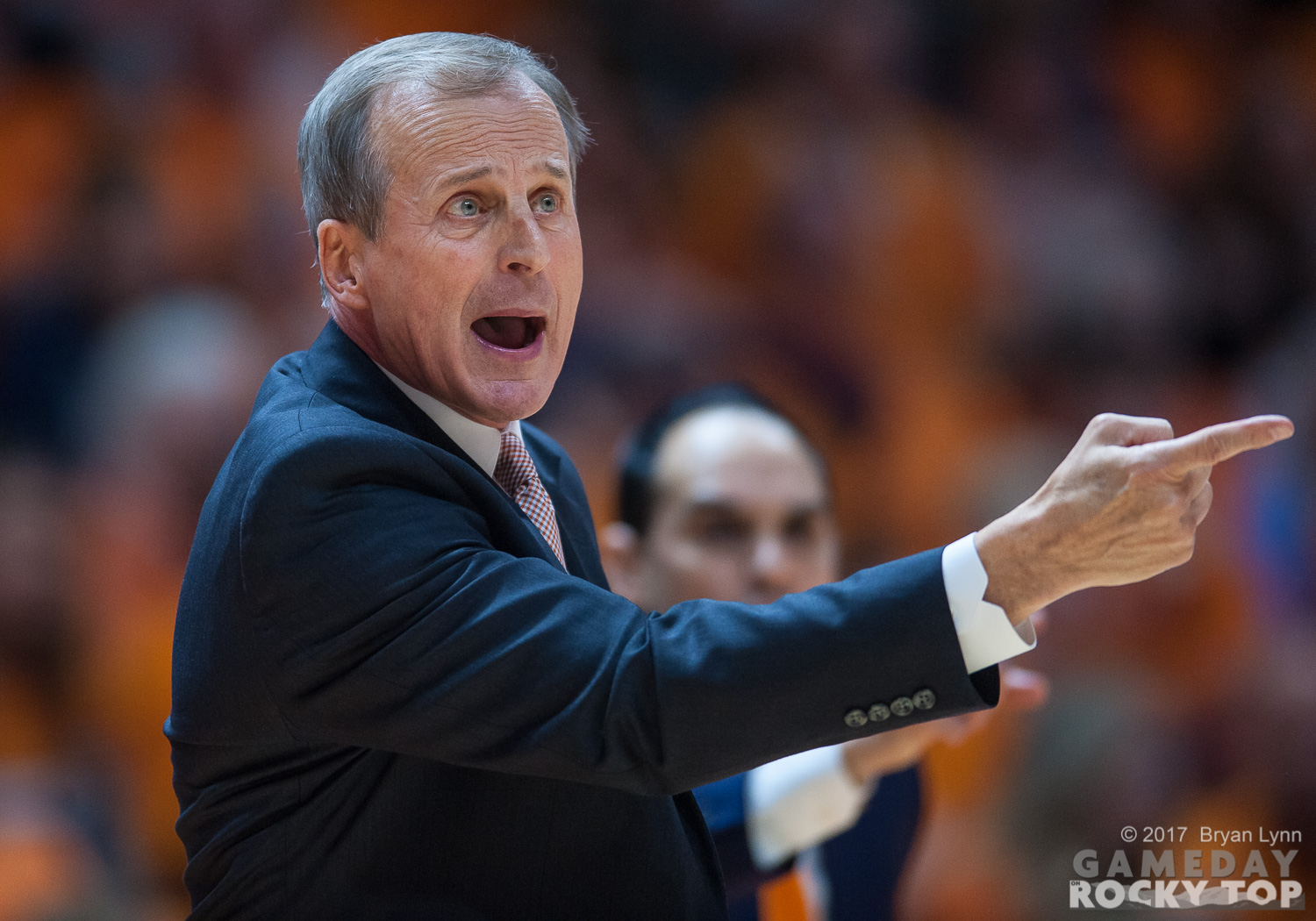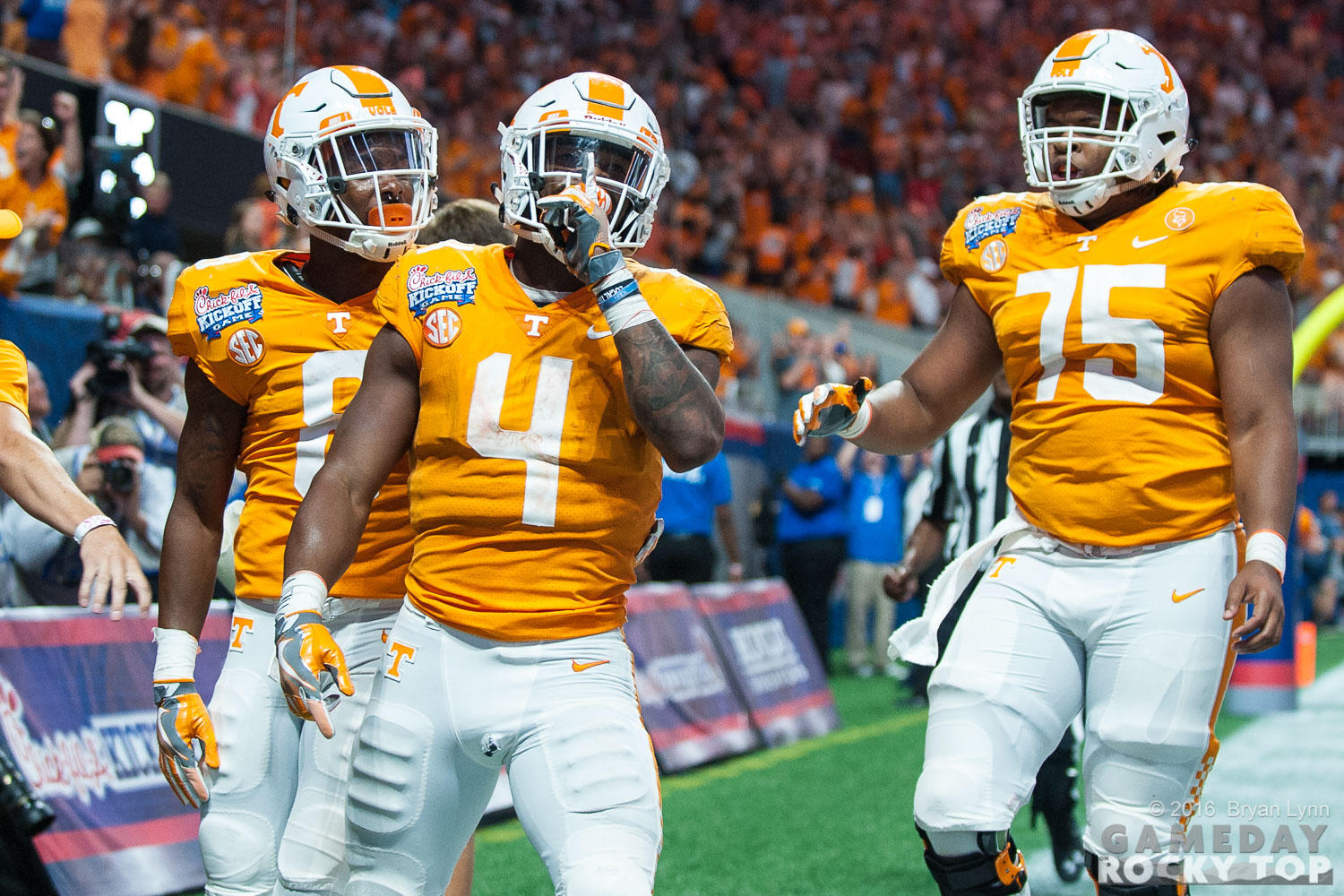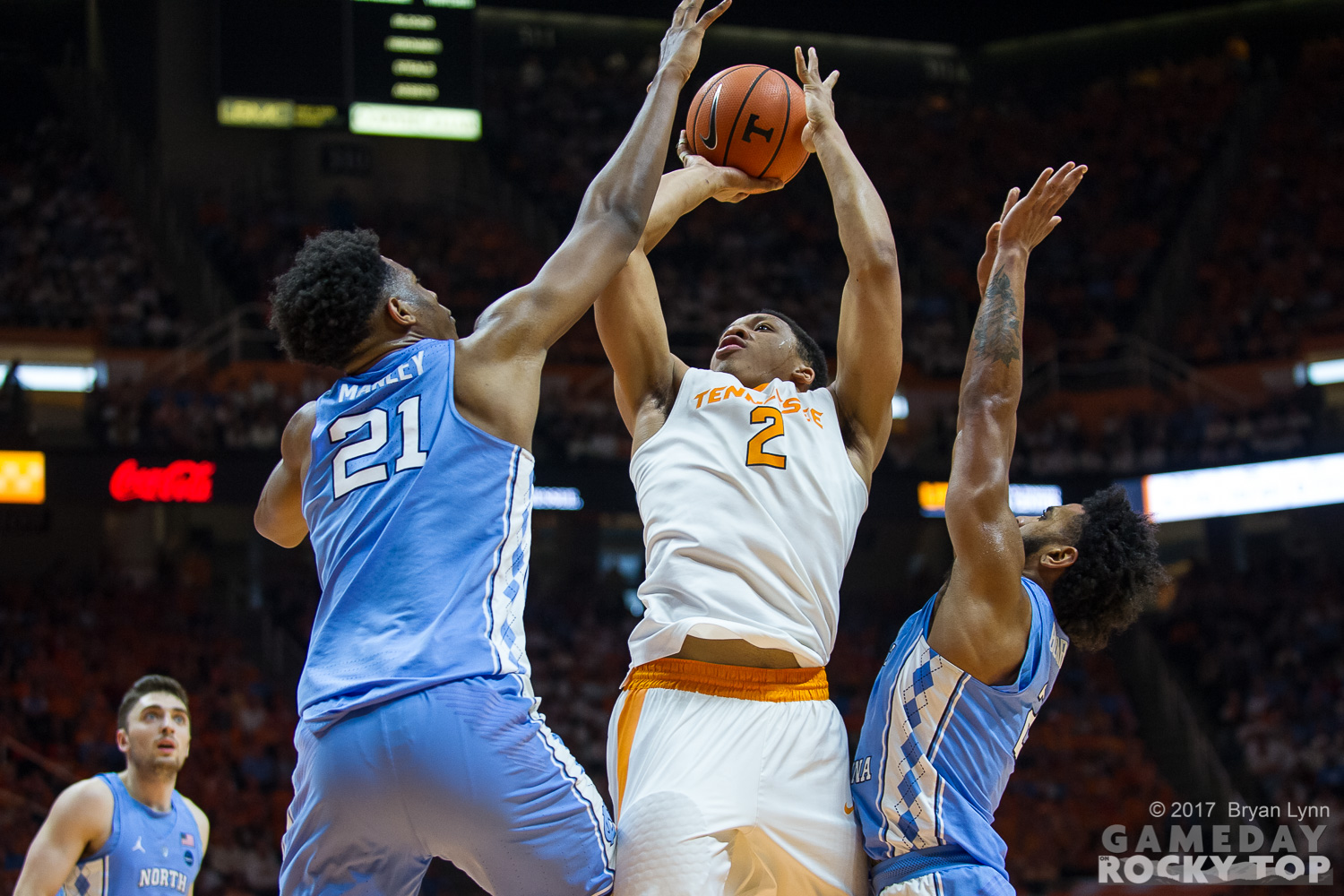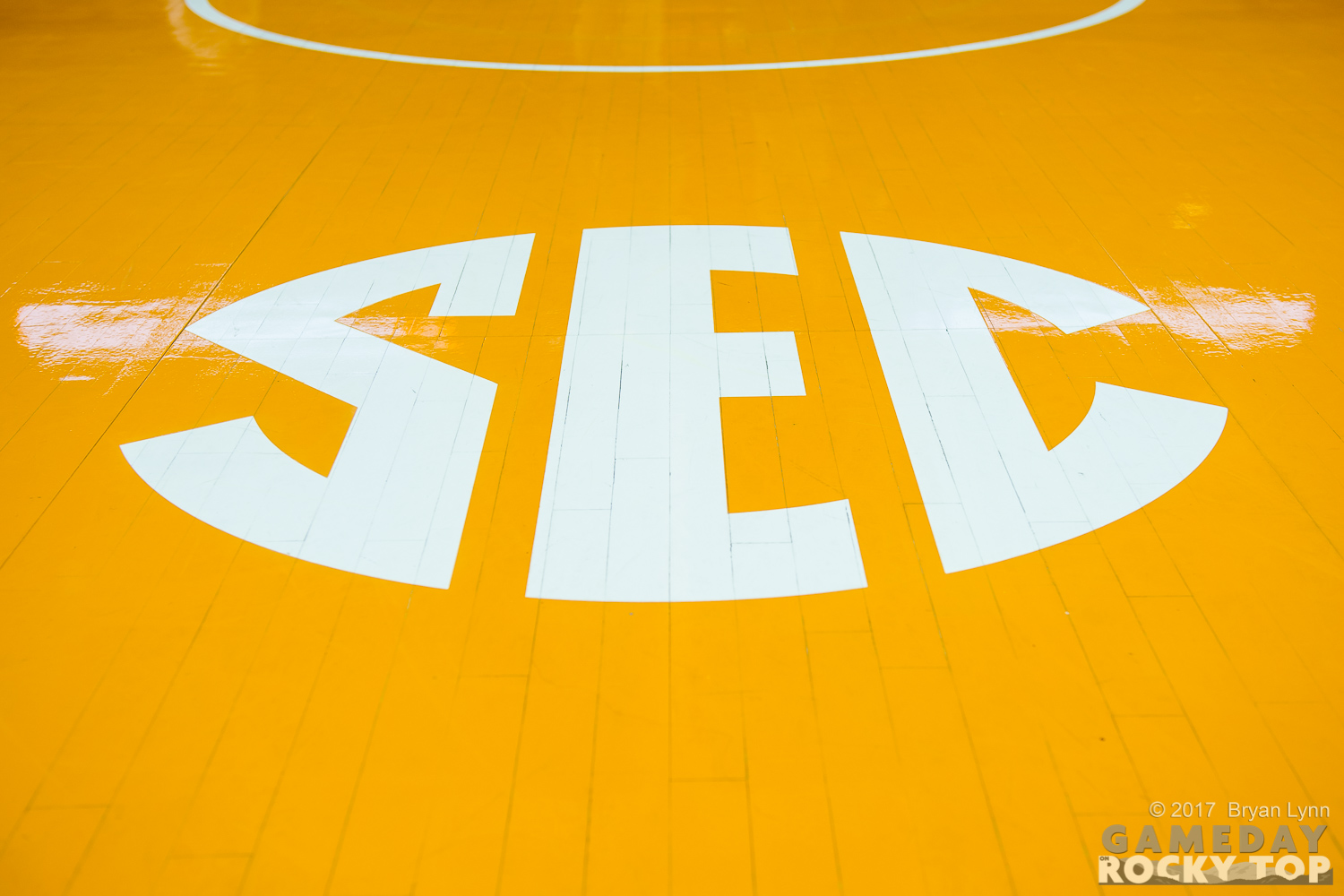A huge part of being a great basketball team is overcoming adversity, and that’s the simple reason why this Tennessee team has to settle for “very good” right now.
It’s going to take a major breakthrough for the Vols to take that next, logical leap.
One of the best, deepest UT teams in the past few years — and easily the best so far under Rick Barnes — again built and held a big, late lead against a quality opponent on Saturday. But just like in previous losses to No. 1 Villanova and top program North Carolina, the Vols squandered it down the stretch against a very good Arkansas team in Fayetteville.
What transpired was the Vols blowing a nine-point advantage with 3:30 to go, and after the game went into overtime, the Razorbacks broke things open for an 11-point advantage before UT stormed back to fall just short, 95-93.
Yes, Tennessee was a six-point underdog against a 10-2 Hogs team on the road, so the Vols weren’t necessarily “supposed” to win this game, despite being ranked 19th. But, as the game transpired and played out, the Vols were supposed to win. They were the better team, more disciplined, deeper, and they were in control for essentially the entire time.
But Barnes’ bunch couldn’t bring it home. Again.
The Hogs’ 40 minutes and 94 feet of hell finally got to Tennessee, which couldn’t keep its composure against the press down the stretch. Things built upon themselves, Arkansas began to believe it could come back, and everything snowballed on the Vols.
It didn’t help matters that UT leading scorer Grant Williams was saddled with foul trouble for important stretches and was called for a ticky-tack foul that replays showed was a clean block. Therefore, the Vols didn’t have him down the final stretch of the game or in overtime. It showed. Then, early in the extra session, Admiral Schofield fouled out, leaving the Vols too small to play their game.
That’s not only two key cogs in the size of the frontcourt, it’s also two of the three biggest offensive pieces of the puzzle for Barnes. This was some serious adversity, but getting the calls on the road is rarely going to happen. UT needed to overcome that, and it couldn’t.
An ill-advised, missed Tennessee 3-pointer late started the Arkansas flurry, and UT failed to hit some crucial free throws down the stretch. Jordan Bowden missing two of three free throws when he was fouled taking a 3-pointer, and Jordan Bone missing the first of two free throws in regulation with the Vols down one that could have kept the game from going into overtime were pivotal, crucial blunders.
We can crow about the one-sided officiating — which seems to be the norm when Doug Shows is on the whistle — but there was other business the Vols should have taken care of that it could control. Instead, Tennessee falls to 9-3 and 0-1 in a rugged SEC that is going to be hard to navigate all season. Games like this, the Vols desperately need to win, and this is one that is going to sting for a while.
Right now, Tennessee certainly looks like an NCAA Tournament team; we all know that. But there is a lot of basketball season left to play, so when you have opportunities like this one on the road in the palm of your hand and you let it slip away? It has major implications and ramifications in the long run. Now, the Vols must head home to take on another very good conference foe in Auburn.
Just how tough is Tennessee’s early-season conference slate? After the home game against the Tigers, the Vols host Kentucky. Then, they have to travel to the biggest joke of a basketball court in all of college sports to take on Vanderbilt at Memorial Gymnasium, and that’s always a difficult game. The Vols then host fifth-ranked Texas A&M, travel to Missouri and then go to South Carolina, a Final Four team from a season ago.
That’s a brutal stretch.
So, when you look at the upcoming stretch of games, a sure-fire tournament team can go to an afterthought in a hurry. That’s why Saturday hurts so much; the Vols should have won this game in Fayetteville. Say what you want about the foul calls or the one-sidedness or how much a team is hamstrung when it doesn’t have its leading scorer. All of that is accurate.
But that’s why Barnes gets paid the big bucks, and that’s why the Vols have to overcome.
Remember when I said this was the best and deepest Tennessee team the Vols have had in a while? It’s also one of the youngest, and that’s been evidenced by the way UT played at times down the stretch against other, quality opponents.
This is a team that can play its way and impose its will on teams for large swaths of the game, but if it doesn’t close out those wins, it doesn’t matter.
Williams picking up his fourth foul with 3:33 to go and getting another one that sent him to the pine with 2:10 left is ridiculous. But it’s basketball; and Tennessee still held its own destiny in its hands.
As stifling as Tennessee’s defense has been at times this season, it crumbled down the stretch against the Hogs. UT’s point guard play was much-improved than what it’s been with Bone and James Daniel, but the defense was lax. Arkansas’ guards Daryl Macon and Jaylen Barford played like the senior combo they are, combining for 60 points in the win.
That’s too much for Tennessee to allow.
So, this was an awfully difficult loss to stomach, and it’s one that could sting more later. There’s no reason to hit the panic button, and there’s no reason to be worried about the long-term ramifications, but this is now three games against excellent competition that could have been three Tennessee wins. At the very worst, the Vols should be 1-2 against ‘Nova, UNC and the Hogs. Instead, they’re 0-3.
This needs to be a teaching moment and a hard lesson, but UT can regroup and return. This team needs Williams on the court and it needs to find a formula that works down the stretch. If those two things don’t happen, the rest of this season may not play out the way we’d hoped.
